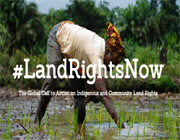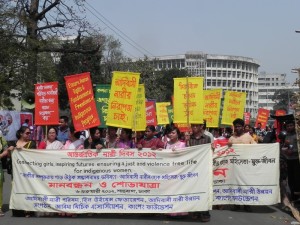
Leaders of the indigenous women’s organisations demanded to ensure justice to the indigenous women by taking necessary step to stop all kind of violence against indigenous women. They said that the biggest concern in brutal violence against indigenous women was the lack of access to justice and absolute impunity that perpetrators enjoy. Violence against indigenous women both in Chittagong Hill Tracts (CHT) and plain land were successively increasing due to failing bringing perpetrators to the justice, indigenous women leaders alleged.
This demand was raised at a human chain and rally jointly organised by Adivasi Nari Parishad (Indigenous Women Council) from north Bengali, Hill Women’s Federation from CHT, Adival Nari Unnayan Sangathan (Indigenous Women Development Organisation) from greater Sylhet and Abima Michik Association (Abima Women Association) from greater Mymensingh in cooperation of Kapaeeng Foundation with the support of Global Human Rights Defence (GHRD) on 6 March 2012 from 10.30 am to 12.00 noon at Shahbag (in front of National Museum) in Dhaka on the occasion of International Women Day with the slogan “Connecting girls, inspiring futures: ensuring a just and violence-free life for indigenous women”.Several rights organisations, such as, Bangladesh Nari Pragati Sangha, Karmojibi Nari, Nari Pokhkho, Bangladesh Mohila Parishad, Bangladesh Adivasi Forum, Indigenous Peoples Development Services, Hill Students Council, Bangladesh Adivasi Chhatra Sangram Parishad, Bangladesh Adivasi Cultural Forum, Bangladesh Chhatra Union, Garo Students Union (GASU) and Oxfam expressed solidarity with the demand of indigenous women’s organisations.
Chairperson of Abima Michik Association Ms. Minu Mrong claimed that indigenous women were always victim of rape. They were facing not only physical torture, but various form of inhuman discrimination. The indigenous women of Modhupur were not different. She demanded to stop violation immediately over women and to make sure appropriate justice.
Former president of Hill Women’s Federation and general secretary of Kapaeeng Foundation Ms. Chaitali Tripura said that indigenous women were victims of various forms of repression. They were victims of state violence in one hand and also victims of social discrimination on the other. Though present grand alliance government made amendment to the constitution, but did not recognize fundamental rights of indigenous peoples including their own national identities, languages and cultures. There is reserved seat for women in the parliament and local government bodies, but no separate reservation for indigenous women. There is no separate chapter for indigenous women in the National Women Development Policy. She urged government to ensure rights of indigenous women by implementing the 7-point demands of indigenous women placed by the indigenous women&r! squo;s organisations.
Organizing secretary of Bangladesh Mohila Parishad Ms. Rakhi Purakayostha said that though present government promised to implement CHT Accord, but failed to comply with this commitment. She added that in recent years indigenous women were continuing movement in the street in Dhaka and consequently support of the civic groups of the country increased. She urged indigenous women to keep movement continue till to final achievement. She expressed his solidarity with indigenous women organization’s demand and expressed her deeply mourning to Kalpana Chakma who was abducted in 1990s.
Executive Director of Kormojibi Nari Ms. Rokeya Rafique Baby said that indigenous women were most marginalized section of the society. They were suffering from deprivation of political, economic and social rights. Indigenous peoples beared unique distinct culture. Everybody had rights to live with dignity in the country. She called government to ensure indigenous women’s rights.
Manager of Manusher Janno Foundation Ms. Tandra Chakma said that there was some issues regarding indigenous women included in the National Women Development Policy, but these were only to preserve distinct culture of indigenous women. But no issue regarding reservation of seat for indigenous women in the parliament and local government bodies were mentioned in the policy, she alleged.
Presided over by chairperson of Adivasi Nari Parishad Ms. Basanti Murmu, the human chain was addressed by Ms. Dilara Rekha of Bangladesh Nari Pragati Sangha, Mr. Rabindranath Saren of Jatiyo Adivasi Parishad, Mr. Mangal Kumar Chakma of PCJSS, Mr. Ujjal Azim of Oxfam (Project Officer), Ms. Minbui Pala from greater Sylhet region, Mr. Ferdous Ahmed Ujjal of Banngaldesh Students Union and Mr. Harendranath Singh of Adivasi Juba Parishad. Indigenous rights activist Ms. Rakhi Mrong read out declaration of four indigenous women’s organisations while organizing secretary of Hill Women’s Federation Ms. Chanchana Chakma conducted the event. The human chain was followed by a colourful rally. The rally was started from National Museum of Shahbag area and ended at central Shaheed Minar of Dhaka University. Hundreds of indigenous women and men and mainstre! am women participated in the rally.
The following 7-point of demands raised by indigenous women’s organizations were as follows:
- Stop all kinds of violence against indigenous women and examplary punish those who were involved;
- Ensure equal dignity and rights of indigenous women in all aspects;
- Ensure all fundamental rights including education, healthcare, employment, equal wage of indigenous women;
- Make sure indigenous women’s representatives and partnership in all aspects including parliament and local government bodies;
- Insert a separate chapter in the National Women Development Policy for indigenous women terming them as ‘Indigenous Women’
- Provide constitutional recognition of fundamental rights of indigenous peoples including their own national identities, languages and cultures;
- Implement CHT Accord immediately and fully.



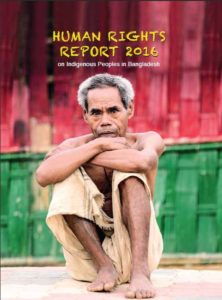
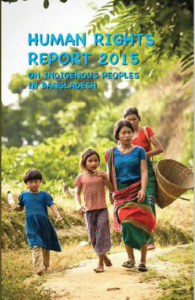
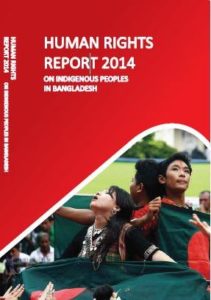
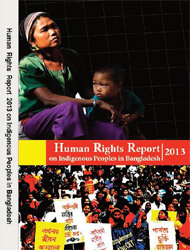
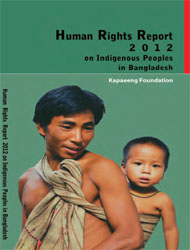
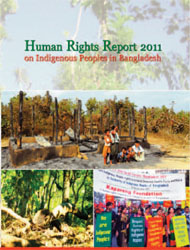
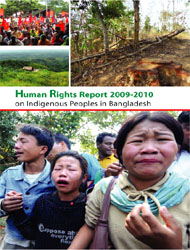

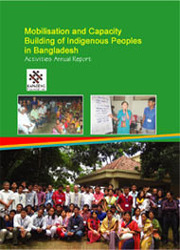



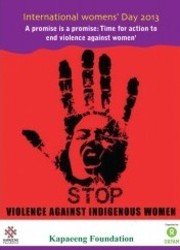
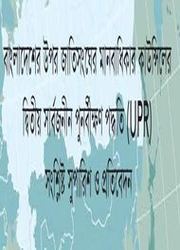
 March 7th, 2012
March 7th, 2012  KapaeengUser
KapaeengUser  Posted in
Posted in 